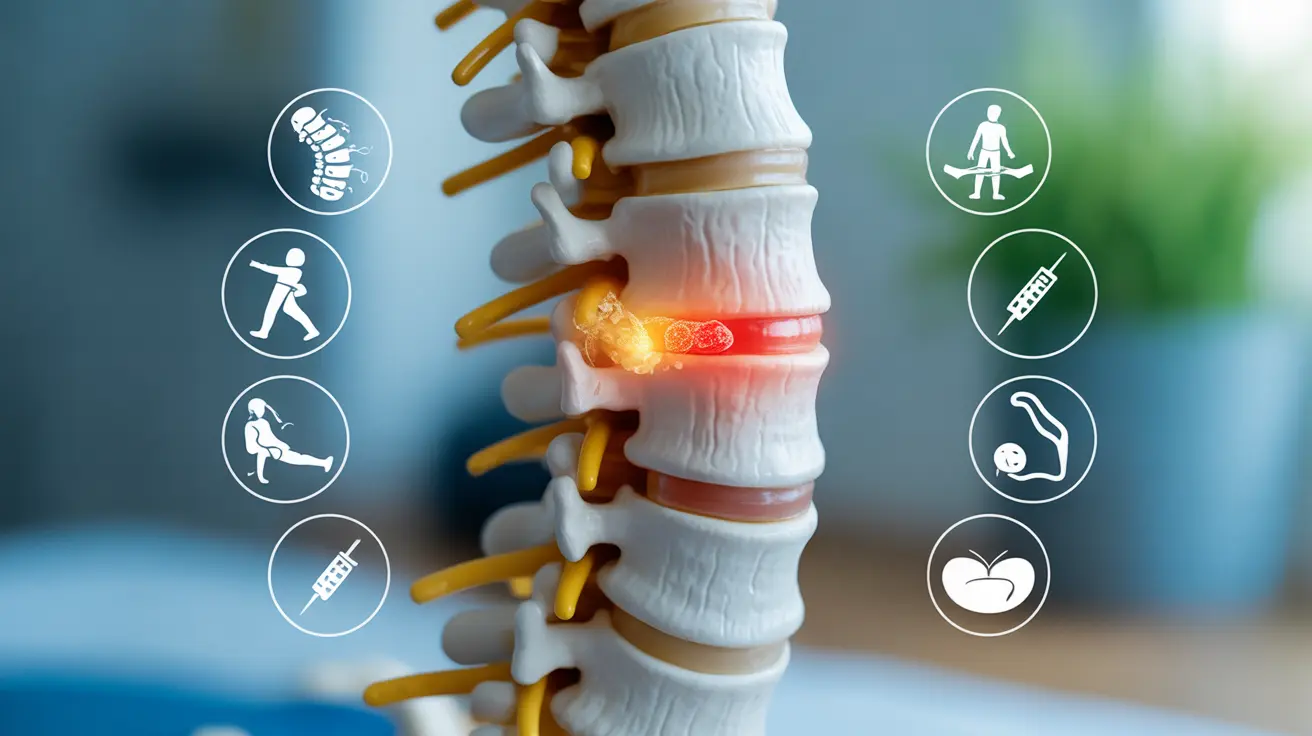Living with degenerative disc disease can be challenging, but numerous therapeutic options are available to help manage symptoms and improve quality of life. This comprehensive guide explores the full spectrum of treatments, from conservative approaches to cutting-edge procedures, helping you understand your options for managing this common spinal condition.
Whether you're newly diagnosed or seeking alternative treatment options, understanding the various therapies available can help you make informed decisions about your care in partnership with your healthcare provider.
Conservative Treatment Approaches
Conservative therapies form the foundation of degenerative disc disease management, often providing significant relief without the need for more invasive procedures.
Physical Therapy and Exercise
A structured physical therapy program typically includes targeted exercises to strengthen core muscles, improve flexibility, and maintain proper spinal alignment. Specific techniques may include:
- Stretching exercises for spinal flexibility
- Core strengthening routines
- Low-impact aerobic activities
- Posture correction exercises
- McKenzie method exercises
Pain Management Techniques
Various pain management strategies can help control discomfort and improve function:
- Over-the-counter pain medications
- Prescription pain relievers when necessary
- Hot and cold therapy
- Manual therapy techniques
- Therapeutic massage
Advanced Non-Surgical Interventions
When conservative treatments provide insufficient relief, several advanced non-surgical options may be considered.
Injection Therapies
Various types of therapeutic injections can help manage pain and inflammation:
- Epidural steroid injections
- Facet joint injections
- Nerve block procedures
- Radiofrequency ablation
Minimally Invasive Procedures
Modern minimally invasive treatments offer new hope for managing disc-related pain:
- VIA Disc procedure for disc regeneration
- Intracept procedure for nerve ablation
- IDET (Intradiscal Electrothermal Therapy)
Surgical Options
When conservative and minimally invasive treatments fail to provide adequate relief, surgical intervention may be recommended. Modern surgical techniques include:
- Microdiscectomy
- Artificial disc replacement
- Spinal fusion
- Minimally invasive decompression
Lifestyle Modifications and Self-Care
Successful management of degenerative disc disease often requires comprehensive lifestyle changes:
- Weight management programs
- Smoking cessation support
- Ergonomic modifications
- Proper sleep positioning
- Stress management techniques
Emerging Treatments
The field of spine care continues to evolve with promising new therapies:
- Stem cell therapy
- Platelet-rich plasma (PRP) injections
- Growth factor treatments
- Gene therapy research
Frequently Asked Questions
What are the most effective non-surgical therapies for managing degenerative disc disease pain?
The most effective non-surgical therapies typically include a combination of physical therapy, pain management medications, therapeutic injections, and lifestyle modifications. Success often comes from a personalized approach combining multiple treatment strategies.
When is surgery recommended for degenerative disc disease, and what surgical options are available?
Surgery is typically recommended when conservative treatments fail after 6-12 months, or when there's significant nerve compression or spinal instability. Options include microdiscectomy, artificial disc replacement, and spinal fusion, depending on the specific condition and symptoms.
How do minimally invasive treatments like VIA Disc or Intracept procedures work for degenerative disc disease?
VIA Disc treatment involves injecting biocompatible materials to promote disc healing, while Intracept uses radiofrequency energy to disable nerve fibers carrying pain signals from damaged discs. Both procedures aim to provide pain relief while avoiding major surgery.
Can lifestyle changes such as weight loss and quitting smoking improve symptoms of degenerative disc disease?
Yes, lifestyle changes can significantly impact symptoms. Weight loss reduces stress on spinal discs, while quitting smoking improves blood flow and disc nutrition. These changes, combined with proper exercise and posture, can help manage symptoms effectively.
Are emerging biologic therapies, like stem cell injections, safe and effective for treating degenerative disc disease?
While showing promise, stem cell therapy and other biologic treatments are still considered experimental for degenerative disc disease. Early research indicates potential benefits, but more studies are needed to confirm long-term safety and effectiveness.




